|
 Alastair Creelman Alastair Creelman
Course organiser, facilitator
|
Alastair Creelman is an e-learning specialist at the Linnaeus University library in Kalmar. He is particularly interested in the opportunities that technology offers to open up education to all. He monitors developments and trends in educational technology and disseminates his findings through his blogs, Twitter and other social media as well as in published articles and conference contributions. He has taught in most areas of education (school, adult education, corporate training and university) and is today active in several national and international networks and organisations as well as Nordic and EU projects. |
Maria Kvarnström
Course organiser |
Maria Kvarnström has a position as Senior Lecturer, Linköping University, Sweden. She has a background as Biomedical Laboratory Scientist and research in the medical field before working full time with education. Maria has an interest for online learning and how to manage the challenges for facilitating learners when locating education to an open online learning environment. Further she has a strong interest for PBL and is very interested in exploring how PBL can be practised in an online setting. |
|
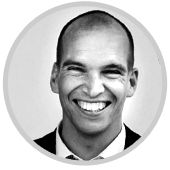 Jörg Pareigis Jörg Pareigis
Course organiser
|
Jörg Pareigis is Head of the Centre for Teaching and Learning at Karlstad University, where he is also Assistant Professor in Business Administration and researcher at CTF, Service Research Center. In addition to his role as program manager of the International Business program, he leads the externally funded WISR16 and WISR17 course development projects. The purpose of the projects is to develop open online graduate courses for professionals in the private and public sector based on strategically important research centres at Karlstad University. |
|
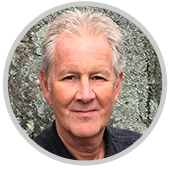 Lars Uhlin Lars Uhlin
Course organiser
|
Lars Uhlin works as an Educational Developer at Linköping university and Mälardalen university. He has a background in Nursing and has long experience of Health Care Education and Problem-based learning (PBL). For the last 20 years he has worked with educational development in different settings both on the national and international arena. He is also coordinating a national/nordic network for PBL and is a member of steering group for the swedish network for Information Technology in Higher Education (ITHU). Some of Lars’ main focus areas are professional development and educational design within a framework of problem based-, interprofessional- and online learning. |
|
 Lotta Åbjörnsson Lotta Åbjörnsson
Course organiser, facilitator
|
Lotta Åbjörnsson works as an educational developer at the Division for Higher Education Development (AHU) at Lund University, Sweden. Apart from this, she is acting system manager for Zoom at Lund University – a position that has kept her very busy over recent months. During six years as part of the organiser group behind the ONL project, she has transformed from tech-adverse to tech-savvy, counting teenage kids saying “we’ll ask mom” one of her main feats. With a background in Physiotherapy and a Diploma in Physiotherapy Education she has worked as a teacher mainly in Physiotherapy programmes employing Problem Based Learning (PBL) as their method of instruction. |
|
 Filip Levälahti Filip Levälahti
Facilitator
|
Filip Levälahti works as an e-learning specialist at Arcada, University of applied sciences in Helsinki, Finland. His job is to support and develop the teachers’ competences in online and blended teaching and to coordinate the pedagogical infrastructure in the campus. Filip also teach a course in digital literacies for all new students at the university. He follows the expression “good online pedagogy begins with good pedagogy, period” (Paul Creasman) and is eager to find out how good pedagogy can be applied with modern technology. |
|
 Alan Soong Alan Soong
Facilitator
|
Alan Soong is Associate Director at the Centre for Development of Teaching & Learning, National University of Singapore. He teaches courses on blended learning, education grant writing and other topics such authentic learning environments and module design. His research focuses on academic development, online teaching & learning in higher education and living-learning communities. Alan served on the executive committee of the Australasian Society for Computers in Learning in Tertiary Education (ASCILITE) from 2012 till 2019. He participated in ONL171, and has since been a co-facilitator or facilitator. |
|
 Sonja Sharp Sonja Sharp
Facilitator
|
Sonja Sharp has been with Varsity College (an educational brand of The Independent Institute of Education, the largest private provider of higher education in South Africa) for the past sixteen years. During that time she has developed her interests in teaching and learning, specifically with a focus on educational technology and online mediation. Currently Sonja’s position within Varsity College is that of Educational Technologist, where she supports the adoption of blended learning, online mediation, the institutional LMS, and supports the national drives of transformative teaching and learning strategies across a national footprint of eight higher education campuses. |
|
 Gregor Theilmeier Gregor Theilmeier
Facilitator
|
Gregor Theilmeier is a trained anesthesiologist, translational researcher and passionate teacher. He has taught at various medical schools since 1995 and now holds a professorship at the University of Oldenburg in Germany, where he participates in the founding of a new medical school. He holds a cross appointment at the University Medical Center in Groningen. He started to teach PBL (offline) courses in the late 1990s at the medical school of the University of Münster. Ever since he has been engaged in and passionate about teaching PBL in medical contexts. He participated as a student in ONL181 and was so excited about online teaching and learning in the ONL format that he immediately returned to ONL191 to join in supporting the next generation of ONL enthusiasts as a co-facilitator, and hasn’t left since. |
|
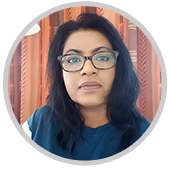 Thashmee Karunaratne Thashmee Karunaratne
Facilitator
|
Thashmee Karunaratne works at the Department of Computer and Systems Sciences, Stockholm University, as a project manager and a senior researcher. Her main research interests focus on learning analytics and mining educational data, specifically on how to use the log data in the e-learning systems as another dimension for student and course evaluations, mainly for online courses. Use of ICT for bridging communication gaps among Ph.D. students and how blended supervision models help supervisors for conducting efficient and quality supervision are among other topics. Thashmee holds a Ph.D. in machine learning and data mining and is currently involved in teaching courses and supervising students in both classroom and online settings. In parallel with the work at the Center for teacher education and inspired by taking part in ONL171, she has returned as a co-facilitator and facilitator. |
|
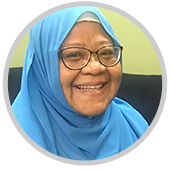 Hafizah Osman Hafizah Osman
Facilitator
|
Hafizah Osman is a learning designer and she manages the eLearning team at the NUS School of Continuing and Lifelong Education (SCALE). She works closely with faculty members involved in Continuing Education to design and develop blended and online learning modules. She comes from media background, with over two decades of cross-platform, industry experience. She participated in ONL 191, and has been a co-facilitator and facilitator since then. |
|
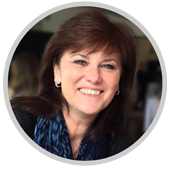 Anne Whaits Anne Whaits
Facilitator
|
Anne Whaits joined the executive team at Educor in May 2018 as Chief Academic Officer after having spent most of 2017 with Academic Partnerships – an American Online Programme Manager (OPM) Business in partnership with public universities in South Africa to take a portfolio of their degree programmes 100% online. Having facilitated several iterations of ONL before, Anne’ s current action research interests include new learning ecosystems with particular interest in developing online facilitation skills amongst academics and digital literacies amongst students. Educor has three distance education brands and five contact delivery brands across South Africa with the number of blended and online offerings growing. |
|
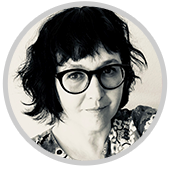 Miriam Fischer Miriam Fischer
Facilitator
|
Miriam Fischer works in the E-Learning Team of Zurich University of Applied Science Department of Social Work. She has a linguistic and paedagogical background. |
|
 Patrik Holm Patrik Holm
Facilitator
|
Patrik Holm is a Biomedical Laboratory Scientist who mainly teaches Nursing and PE teacher students in anatomy and physiology at Karlstad university in Sweden. He has extensive experience and interest in online teaching and he is more than happy to share and discuss pedagogical approaches for both IRL and online education. He has just recently joined the Centre for Teaching and Learning at his university to help his colleagues develop their reasoning and execution of online teaching. |
|
 Karin Bolldén Karin Bolldén
Facilitator
|
Karin Bolldén works as an Educational Developer at Luleå University of Technology, Sweden. She has a professional background as an educational technology specialist and has worked as a university teacher at Skövde University. In 2015 at Linköping University she received her Ph.D. in education with a focus on adult learning. The thesis addresses online teaching practices in higher education. Karin was a participant in ONL192, co-facilitator in ONL201 and is now facilitator during ONL202. |
|
 Lars Harrysson Lars Harrysson
Facilitator
|
Lars Harrysson I work at Lund University, School of Social Work, as a senior lecturer. My main focus in research is in social policy, elderly care and health care. At the moment I am involved in a project called Proactive cancer care, which involves knowledgeable people from many various branches of academy, practice and patient groups. My teaching, apart from joining the ONL team, focus on online and flipped classroom courses in social work and design sciences. I followed the ONL171 a few years ago and took the chance to co-facilitate in ONL172. Very rewarding, thus to try to support the ONL movement was not a hard decision when asked. |
|
 Cecilia Hellekant Cecilia Hellekant
Facilitator
|
Cecilia Hellekant works as a learning designer (ICT pedagogue) at the Centre for Teaching and Learning at Karlstad University. She has a background from the graphical industry and as IT-consultant and has worked more than 15 years as an independent graphical designer. Before joining Karlstad University, Cecilia worked as a high school teacher for 8 years, teaching graphical design, photography and web design. |
|
 Jukka Välimäki Jukka Välimäki
Facilitator
|
Jukka Välimäki works as a pedagogical specialist at Aalto University, Finland. He teaches university pedagogy, develops educational practices, and supports teachers and program managers especially at the School of Chemical Engineering. He is especially interested in digital and social environment of learning. He is used to work with educational technology, online learning and blended learning, but has just taken the role of a facilitator in ONL202. |
|
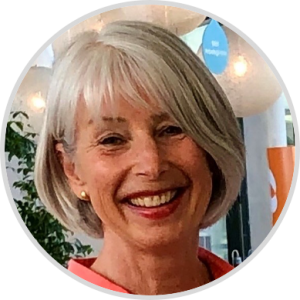 Maria Sandborgh Maria Sandborgh
Facilitator
|
Maria Sandborgh is an associate professor in Physiotherapy and has been teaching for more than three decades, the last decade in online courses at Mälardalen University. Health related behaviour change is the specific focus in both her teaching and research. Current research projects concern implementation research and the development of a digital tool to prevent falls among older people. She is the programme coordinator for the international Master’s programmes in Health and Welfare. Through digital means she wants to make courses available to both national and international students and to promote collaborative, lifelong learning. She is interested in developing courses that support students’ active learning and problem solving capabilities. |
|
 Per Sandén Per Sandén
Co-facilitator
|
Per Sandén is an Associate Professor in Environmental Science and an educational developer at Linköping University. He has more than 20 years of experience as a facilitator of PBL groups on campus and developed and lead the undergraduate program in Environmental Science. He also developed a master program in Environmental Science. The last five years he has mostly worked as an educational developer on higher education pedagogy courses and courses for facilitators in PBL. He has also developed an advanced course for facilitators in PBL. |
|
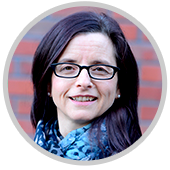 Alexandra Wirth Alexandra Wirth
Co-facilitator
|
Alexandra Wirth I work at the Careum Foundation, Department Educational Development and Kalaidos University of Applied Sciences Switzerland in Zurich, Department of Health Science. In Careum Educational Development I work as pedagogical researcher in the main areas of further development of curricula for problem-based learning (PBL) as well as teacher training PBL, interprofessionality and health literacy. At Kalaidos University I work as junior researcher in a EU project H2020 about mental health and wellbeing of adolescent young carers. I was an open learner in ONL 181 and was completely enthusiastic, and am very happy to be a co-facilitator again on ONL202. |
|
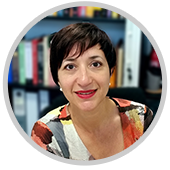 Esther Ventura-Medina Esther Ventura-Medina
Co-facilitator
|
Esther Ventura-Medina works as a lecturer at the Department of Chemical and Process Engineering at the University of Strathclyde, UK. She combines her engineering background, educational training and experience in both in face-to-face and distance learning classes. She is interested in the development of professional skills and does research focusing on investigating teamwork, problem solving skills and team autonomy by looking at the interactions in teams of students. In her own practice she uses PBL as the learning method and is increasingly aware of ‘the digital’ which has taken her to explore further using online tools for collaboration in learning. |
|
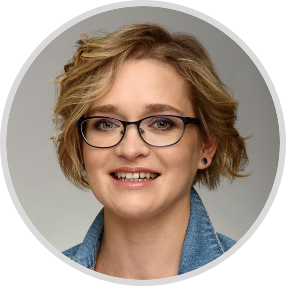 Zsuzsa Kovács Zsuzsa Kovács
Co-facilitator
|
Zsuzsa Kovács works as an assistant professor at Eötvös Loránd University, Institute of Research on Adult Education and Knowledge Management, Budapest, Hungary. She teaches a great variety of courses in the field of education related to adult education and teacher training. She earned her PhD in Educational Sciences researching the supportive context of self-regulated learning. She leads the Professional learning at the workplace research group that runs various projects supporting the deeper understanding of different facets and characteristics of professional learning that takes places formally, non-formally, and informally in different workplaces. As a teacher and researcher, she has joined several higher education development programs. |
|
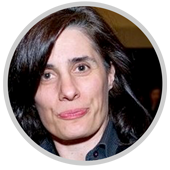 Paula Morais Paula Morais
Co-facilitator
|
Paula Morais is currently involved in a project, funded by the EU, to provide online accredited courses and MOOCs to Syrian refugees in Jordan and Lebanon, and to Jordanian disadvantaged youth. Paula works as an international consultant and advisor on open education, open data, e-learning, distance education, mainly in developing or middle income countries, some of them in fragile contexts, in Africa, Middle East, Caribbean, Latin America. She has been working with the European Union, DFID, UNDP, International Telecommunications Union, World Wide Web Foundation, Governments and Higher Education Institutions. |
|
 Anna Wach Anna Wach
Co-facilitator
|
Anna Wach works as a professor in the Department of Education and Personnel Development and in the Professional Competence Development Unit at the Poznan University of Economics and Business in Poland. She earned her PhD and habiltation degree in the field of pedagogy. Her research interests concern teaching and learning in higher education and academic development. She is a director of the Pedagogical Competence Development Program for PhD Students at the PUEB and a leader in several projects for academics’ teaching skills development. She also has experience in many international research and educational projects. She has graduated from ONL151 and she also co-facilitated two other iterations. Recently she has been developing her skills as a coach. |
|
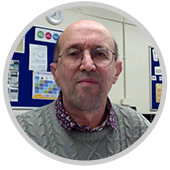 David Bevington David Bevington
Co-facilitator
|
At the present time, David Bevington is a Study Support Tutor at the Cornwall College Group. He is based at the Camborne campus. Since 1986, he has worked as a teacher-librarian at colleges and universities in both the UK, in Cornwall and London; and overseas in Papua New Guinea and Namibia. During his career, he has participated in a variety of networks and initiatives that have increased his interest and involvement in developing online learning opportunities for academics and students. David participated as an open learner in ONL192 and is enjoying incorporating the concepts he learned into his design, development and delivery of blended learning courses. He is looking forward to being a co-facilitator in ONL202. |
|
 Sinéad Whitty Sinéad Whitty
Co-facilitator
|
Sinéad Whitty is Director of Learning at Faculty of Capacity Development, Ireland. Previously, she was Pedagogy Coordinator at the Department of Medicine in Karolinska Institutet, where she was responsible for the design, development and delivery of online, post-graduate courses. Sinéad has twenty years’ experience teaching face to face, online and blended. She is an advocate for technology that supports good teaching and learning practices. Sinéad may be addicted to ONL, having participated in five previous iterations. She is delighted to be back for ONL202. |
|
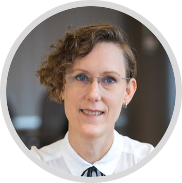 Sara ihlman, Sara ihlman,
Co-facilitator
|
Sara Ihlman is a Learning Designer, consultant, lecturer and former mathematics and science teacher. She has her own company where she develops e-learning on various topics for her customers, helps others in creating their own online courses, and gives lectures on norms, diversity, inclusion and LGBT for schools and companies. Sara participated in ONL191 and is now a co-facilitator. |
|
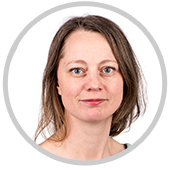 Malin Ekstrand, Malin Ekstrand,
Co-facilitator
|
Malin Ekstrand works as an ICT-librarian at Danderyds University Hospital in Stockholm, currently focusing on developing online education aimed at medical staff. With a background in arts she finds creativity a great source of inspiration, especially when working with digital pedagogy. She participated in ONL 172, and is returning to co-facilitate again on ONL202. |
|
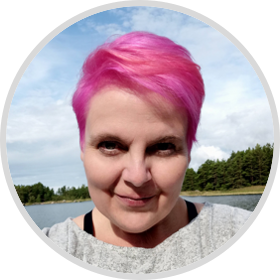 Annika Skogster Annika Skogster
Co-facilitator
|
Annika Skogster is a senior lecturer in clinical care at Arcada, University of Applied Science in Finland. Her main topics are medication administration and calculation, safety culture, emergency care and internal medicine care. The courses in Arcada are so called hybrid courses, in other words online and blended learning courses, where the theory is online but the nursing skills are on campus. Annika has been doing online courses for many years already but is always eager to learn new methods and “tricks”. Annika participated in ONL181 and this is her third time as a co-facilitator. |
|
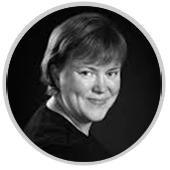 Charlotta Hilli Charlotta Hilli
Co-facilitator
|
Charlotta Hilli works as a university teacher in general and higher education at Åbo Akademi University in Vaasa, Finland. Teaching future educational leaders and administrators and teachers in higher education. Her research interests are learning and knowledge in virtual learning environments, especially distance and online learning. She’s a post-doc researcher in the project HELLA (Higher Education Learning Lab) a research based development project on higher education pedagogy that is developing and piloting a new multilingual 60 ECTS study module in higher education for the needs of the universities and the universities of applied sciences. |
|
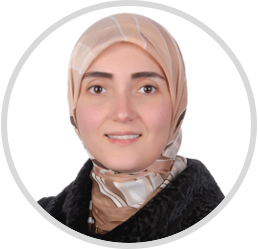 Nesrin Khankan Nesrin Khankan
Co-facilitator
|
Nesrin Khankan I am dentist with specialisation in oral and maxillofacial surgery. I have been supervising dental students for 10 years and lecturing since 2017. Participating in the DIGIHEALTH programme, which concentrates on innovative digital skills & teaching methods for effective health education, has opened my eye to the importance of how we treat the learner and how largely will this affect their lives in the future. I was an open learner in ONL 201 course and now I am joining you as a co facilitator. |
|
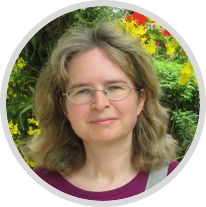 Judit Hahn Judit Hahn
Co-facilitator
|
Judit Hahn works as a senior university lecturer of English at the Department of Language and Communication Studies of the University of Jyväskylä in Finland. She teaches courses in linguistics and discourse studies for pre-service language teachers and language experts of English. Judit completed ONL181 as an open learner and enjoyed it so much that now she is returning to the course as a co-facilitator. She finds international online collaborative learning a highly rewarding and useful experience. Virtual exchange in higher education is in the centre of her interest, both in teaching and in research. She has arranged online collaborative educational projects for her students with universities from Poland, the Czech Republic, Spain, the Netherlands, Japan and Singapore. |
|
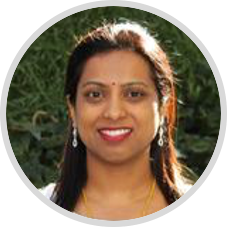 Thaiurie Govender Thaiurie Govender
Co-facilitator
|
Thaiurie Govender I started my career as a teacher in a high school, I then moved to Higher Education in 2012. Although I have a Master of education in Curriculum development, I have always been drawn to digital learning. I was able to develop a fully online first year experience as well as a tutor training program at my previous institution. I now work at Varsity College-Sandton Campus as an Educational Technologist, the role has given me opportunities to explore digital learning and be part of future possibilities in the digital education space.
|
|
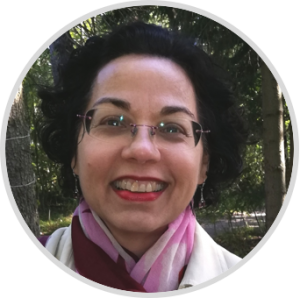 Anya Siddiqi Anya Siddiqi
Co-facilitator
|
Anya Siddiqi contentedly serves as an English for Academic and Professional Purposes (EAP) university lecturer at the Language Centre of Aalto University, Espoo, Finland. She has worked at her present university for almost 11 years, but began her teaching career and online teaching experience at the University of Jyväskylä where she taught her very first blended language course in the mid-90s. This also inspired her to do her master’s degree research on the pros and cons of networked learning from the end-users’ (university students) perspective and she has not looked back. In her desire to learn more about current pedagogical approaches to online learning, she joined ONL as a participant in September 2019 (ONL192) and was suitably educated, challenged, and blown away by the riches that she came away with. Hence, her willingness to return to ONL as a co-facilitator and not only continue to deepen her own understanding and application of online learning (and teaching), but also to support fellow-adventurers. |
|
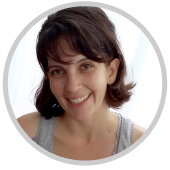 Danielle dos Santos Danielle dos Santos
Contributor
|
Danielle dos Santos is a pharmacist, Professor at the Federal University of Rio de Janeiro Campus-Macaé, Brazil and currently working as a scientist at the University of Oldenburg, Germany. She has a background in public health and health related quality of life. She is involved in projects related to health education, outreach projects, health promotion and recently discovered her interest in online learning and network learning. She was an open learner in ONL181 and is still trying to find new ways to effectively include these new concepts in her daily work. |
|
 Tore Nilsson, Tore Nilsson,
Contributor
|
Tore Nilsson is a senior lecturer in language education, Stockholm University. With a background in English linguistics he now works with foreign language teacher education, in-service training of language teachers and research in language education with a special interest in pre-service teacher cognition and professional devlopment. He has a keen interest in pedagogical development issues. In 2017 he co-ordinated a year-long project at his department with a focus on furthering digital literacy and the use of digital tools in language teacher education. During 2018 he is the pedagogical facilitator for the implementation of a new LMS at his department. Tore participated in ONL171, and has since been a co-facilitator or facilitator. |
|
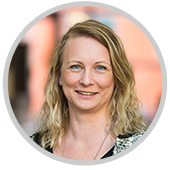 Lotta Fröjdfeldt Lotta Fröjdfeldt
Contributor
|
Lotta Fröjdfeldt is an academic developer at Mälardalen University (MDH), Eskilstuna, Sweden. She focuses on the pedagogical aspects of ICT in Higher Education. Lotta is experienced both as a system developer, 15 years, and as teacher, 7 years, and has worked with academic development since 2015. She is interested in, and is now studying for a masters degree in online teaching and learning in higher education. Lotta was a participant in ONL172, and has since been co-facilitator and facilitator. |
|
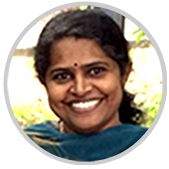 Kiruthika Ragupathi Kiruthika Ragupathi
Contributor
|
Kiruthika Ragupathi is an academic developer with the Centre for Development of Teaching and Learning (CDTL) at the National University of Singapore (NUS). She has a background in Engineering and has worked with academic development since 1997. Her research interests are in analyzing pedagogical issues surrounding the integration of educational technologies into teaching and learning; understanding the learning processes and outcomes for learners engaged in technology-supported tasks; and in tracking and supporting learning in interactive learning environments. Her current research focuses on using student evaluation of teaching to enhance teaching practices and policies; in optimizing instructor interventions in online discussion forums to enhance the student learning experience; and also in studying the impact of gradeless learning on student motivation. Kiruthika took the ONL171 journey, and has since then been a co-facilitator or facilitator. |
|
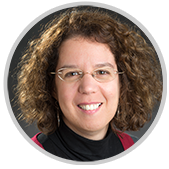 Gizeh Perez-Tenorio Gizeh Perez-Tenorio
Contributor
|
Gizeh Perez Tenorio loves research and considers herself a passionate educator. For many years she has mentored students at Linköping University where she also practiced Problem Based Learning as part of the PhD program: “PBL, for me, was hard at the beginning but brought a lifelong reward at the end”. During ONL162 she discovered the power of PBL online and became fascinated by the course design and pedagogy. In the future she would like to understand more about what makes a successful collaboration in virtual teams, to design pedagogical material for digital courses and to learn MOOC design. |
|